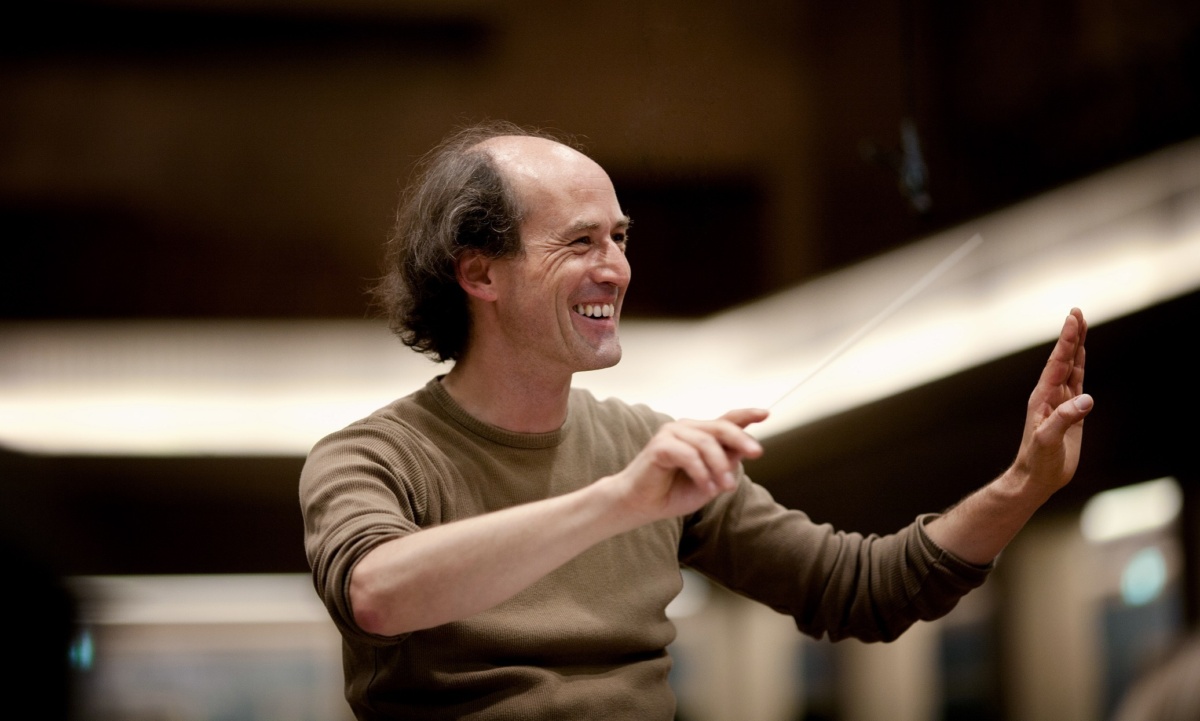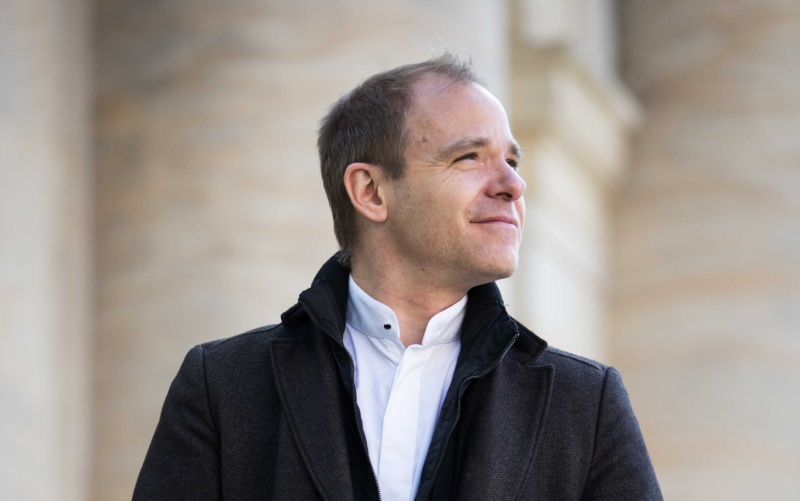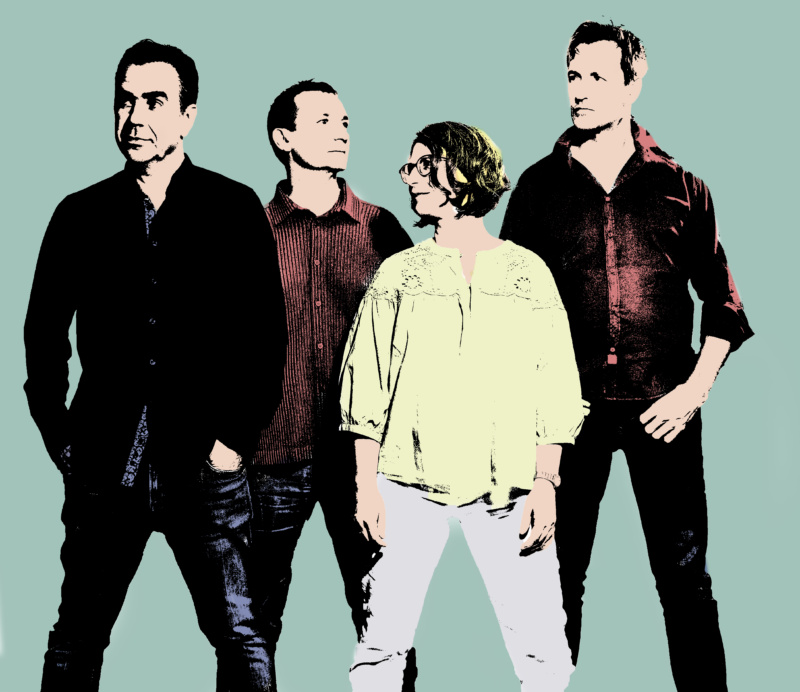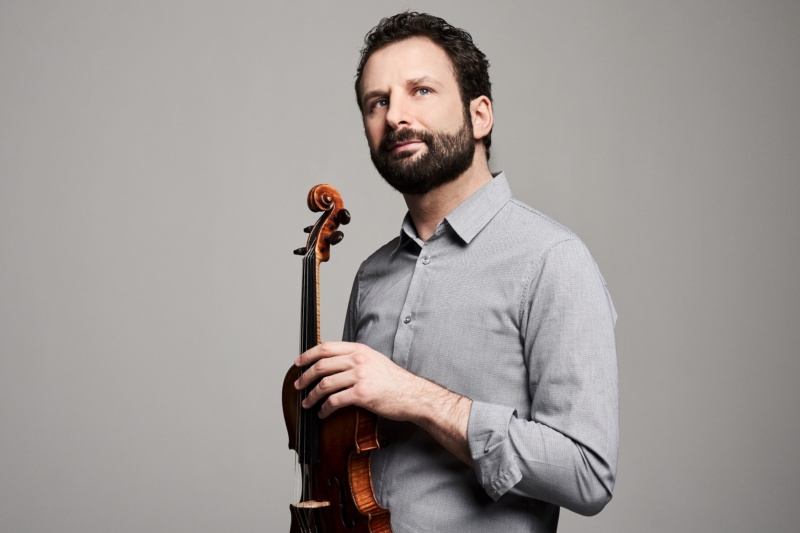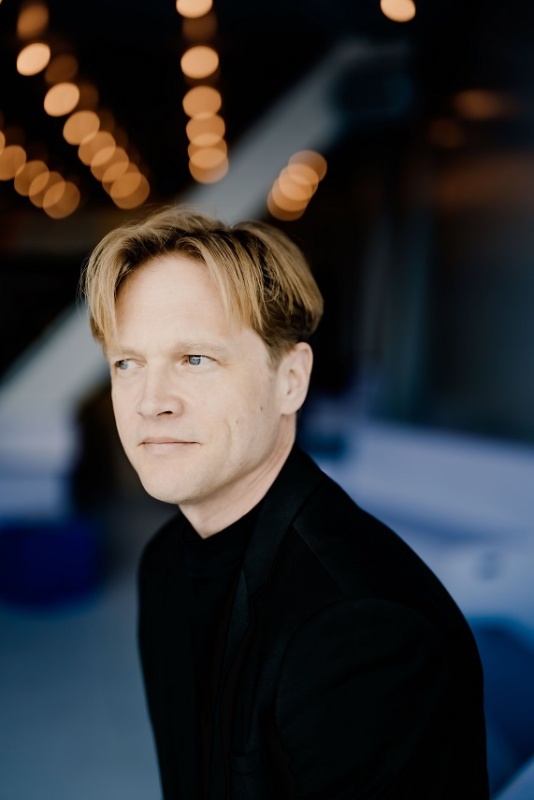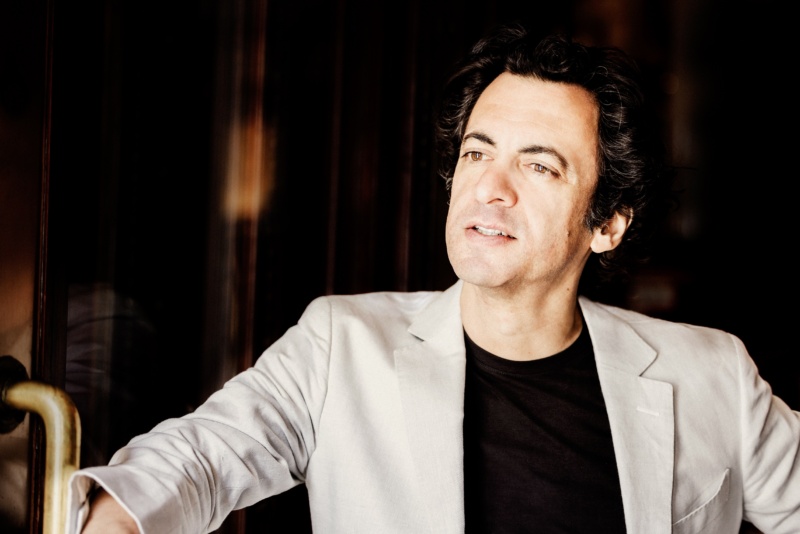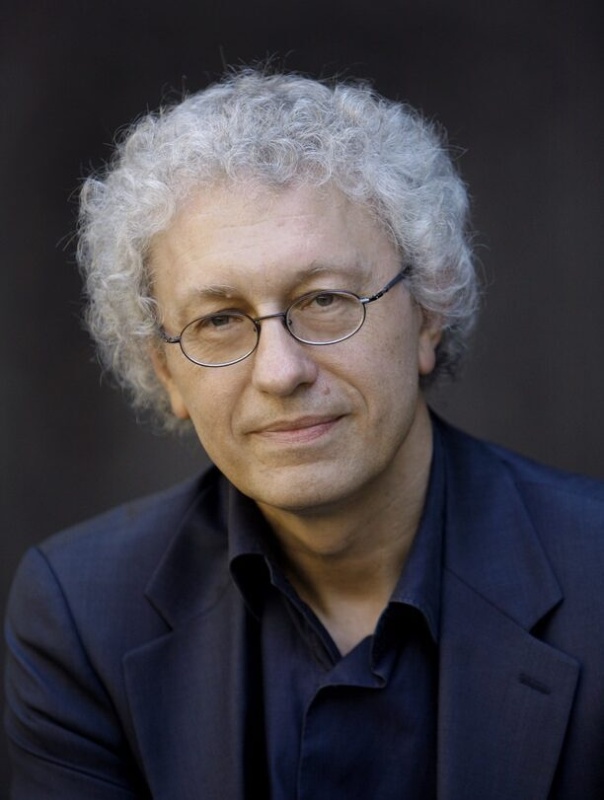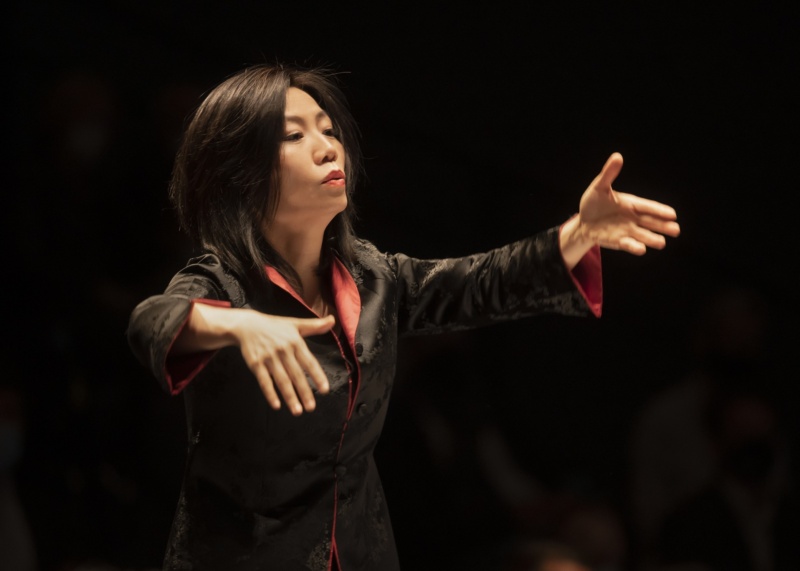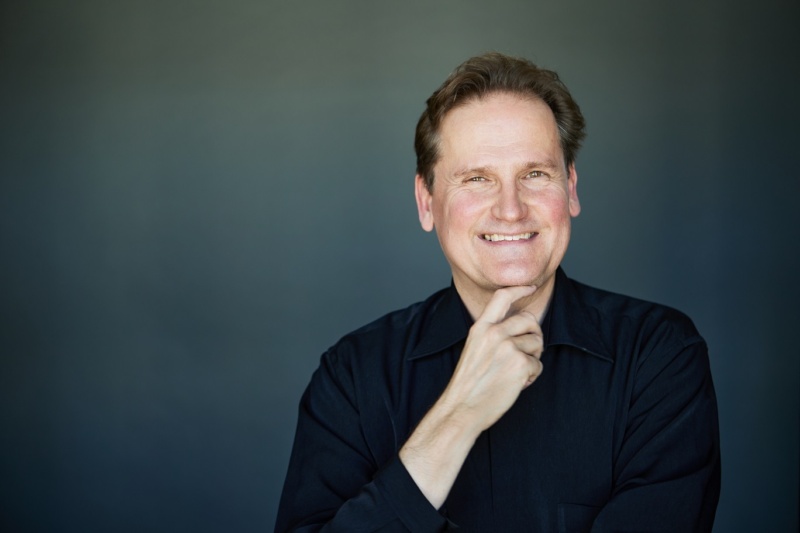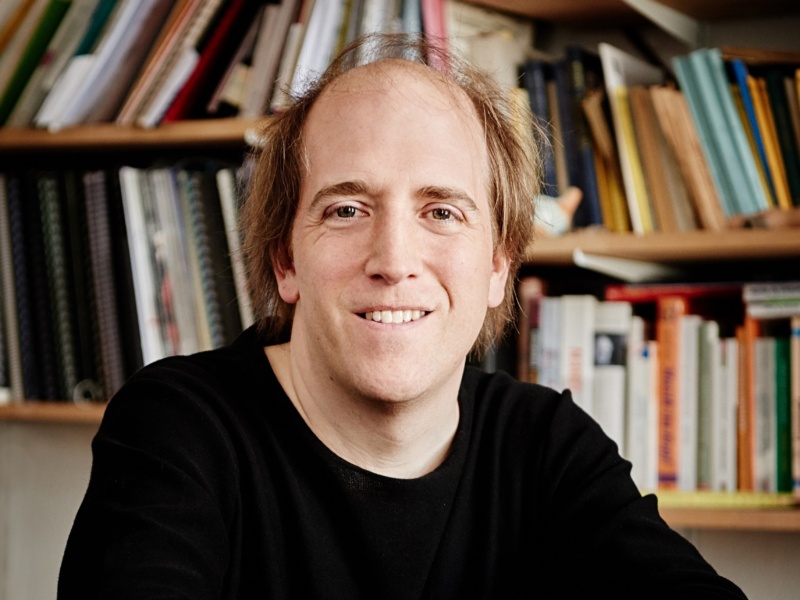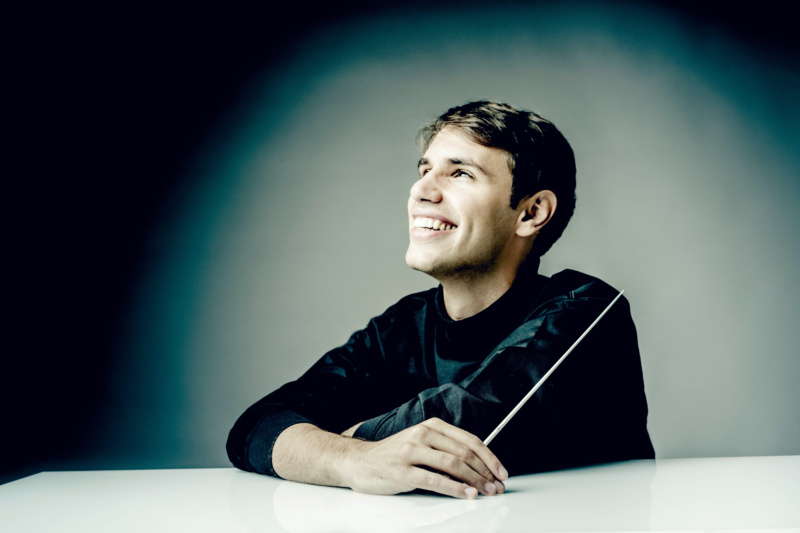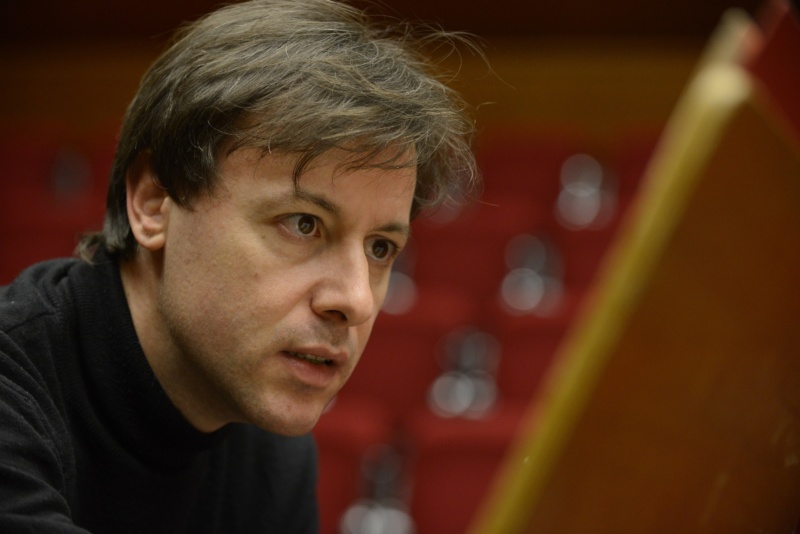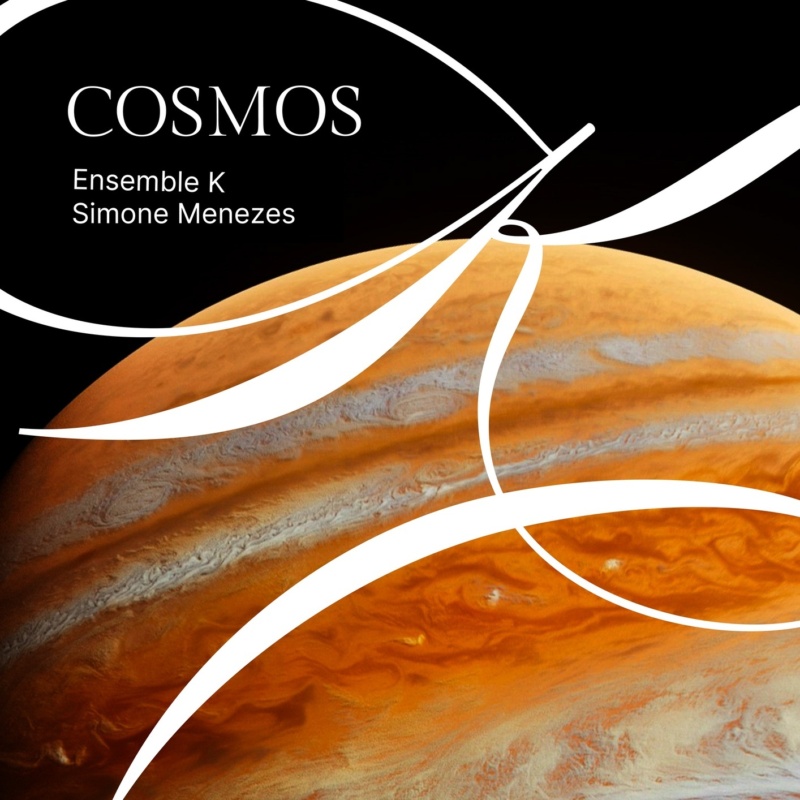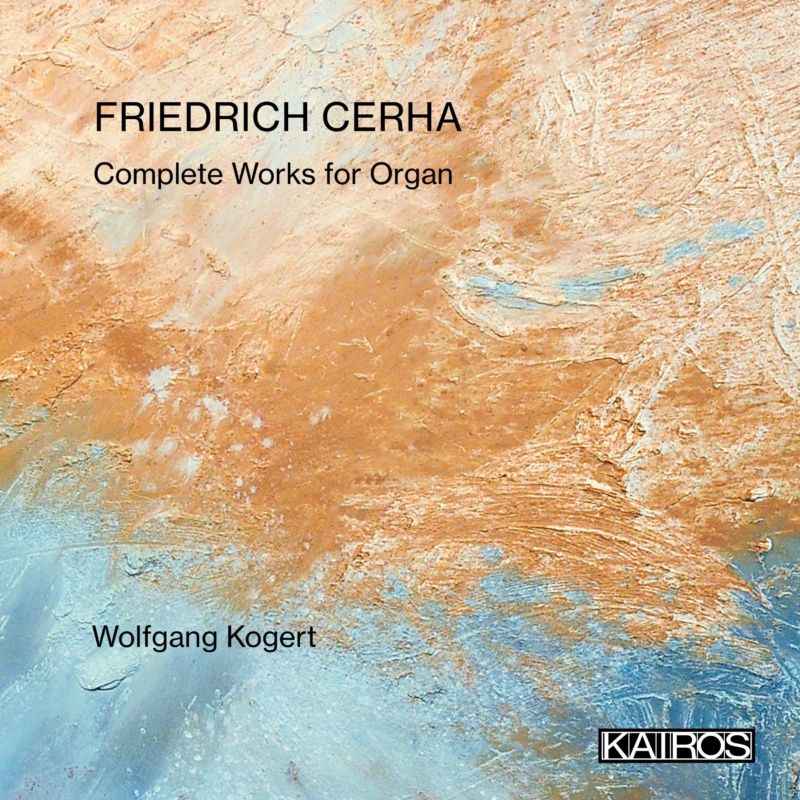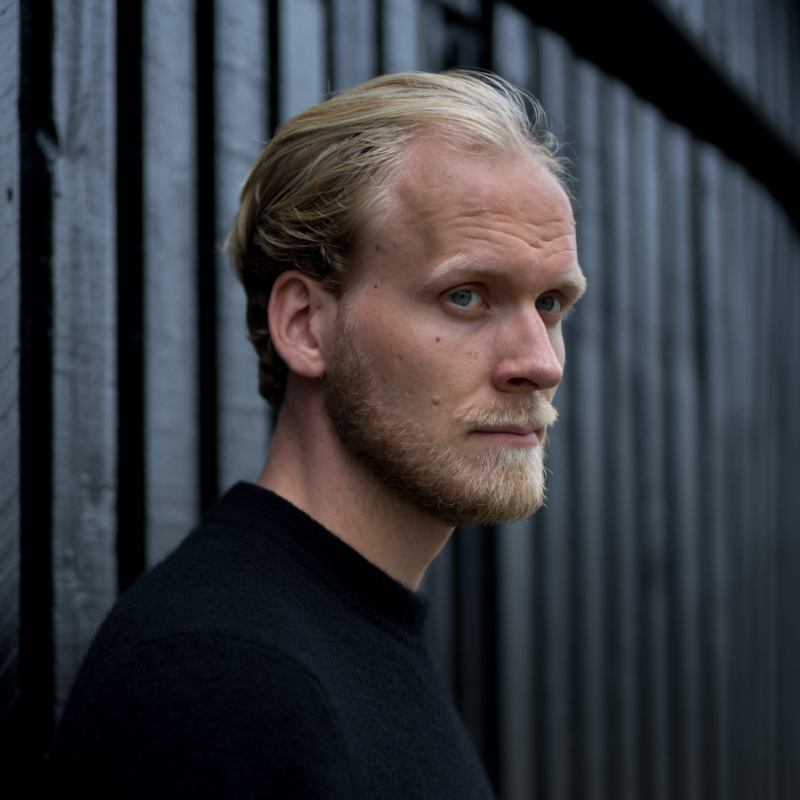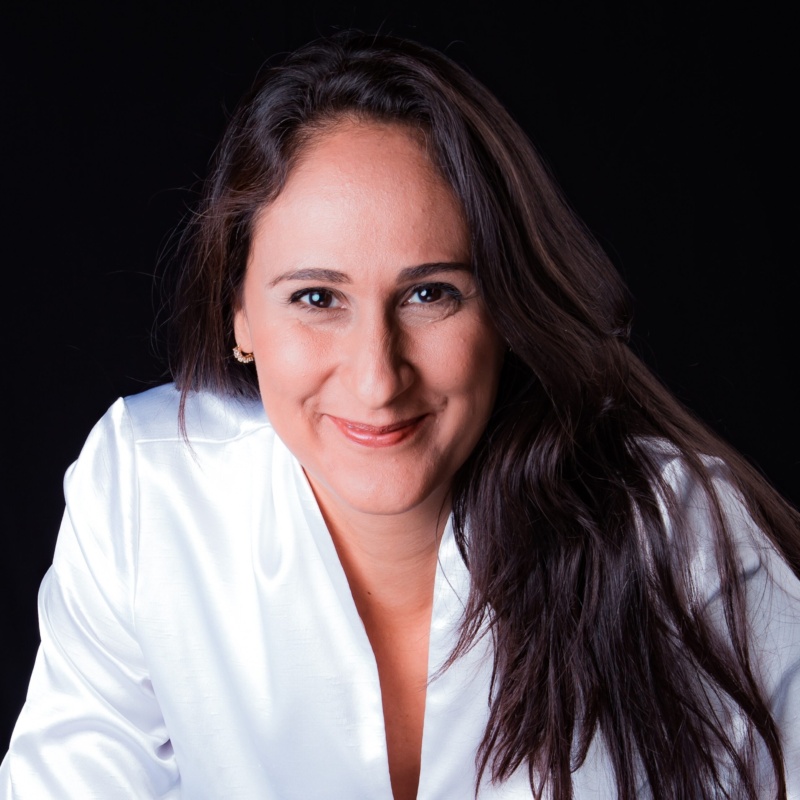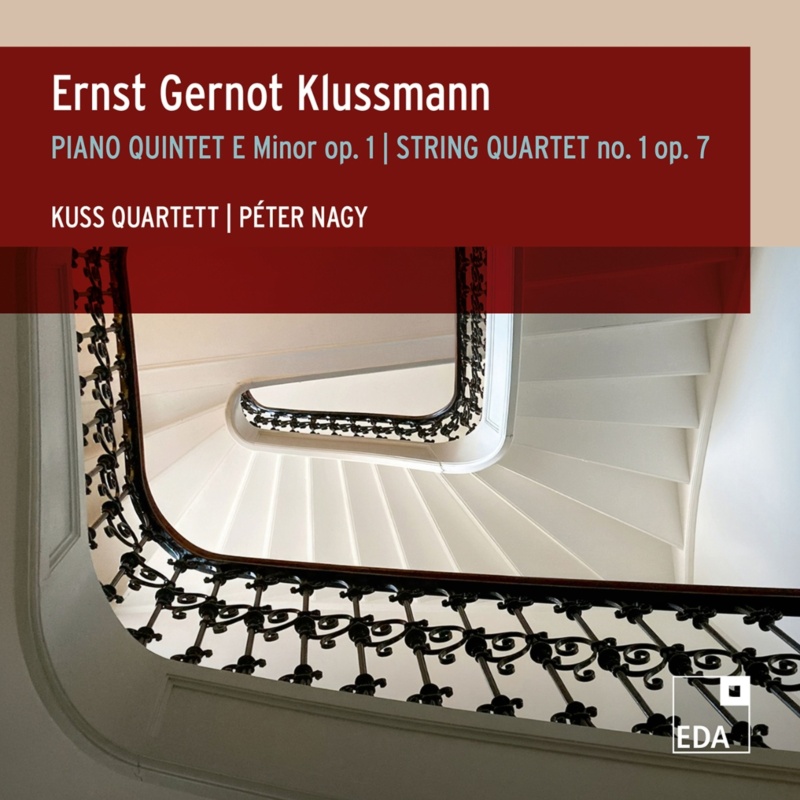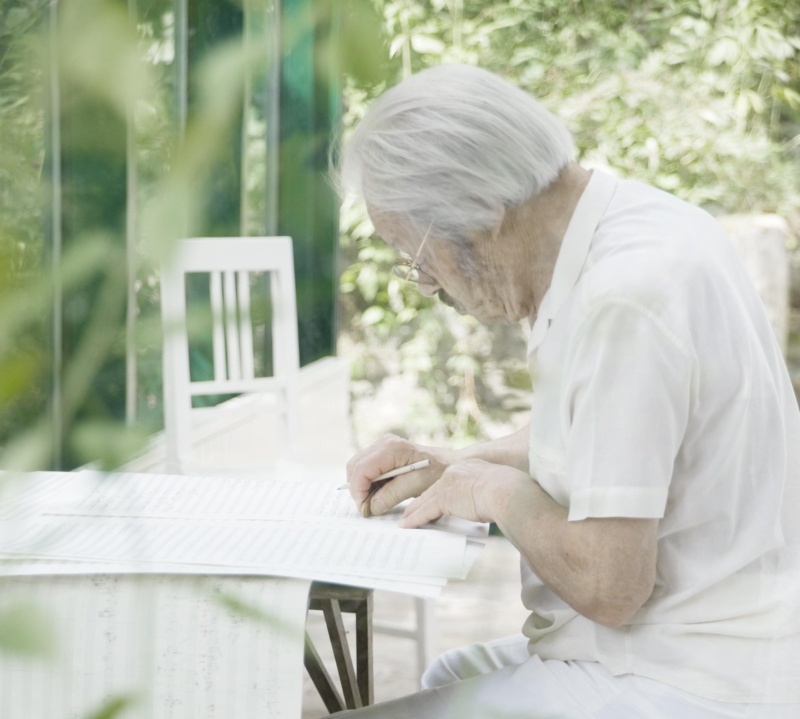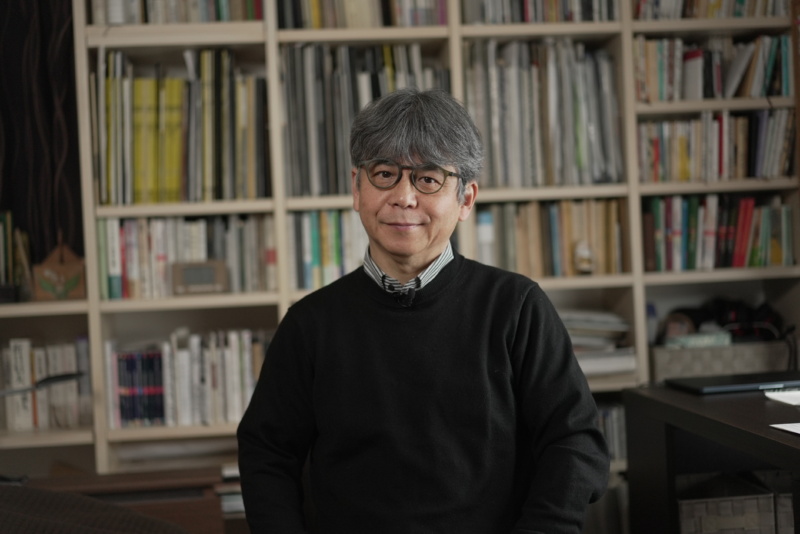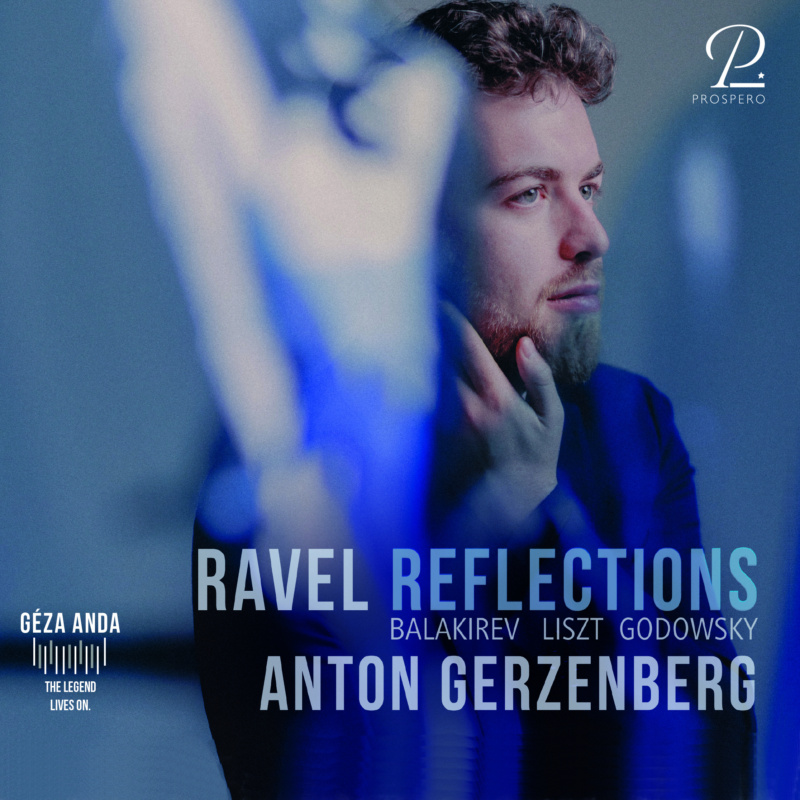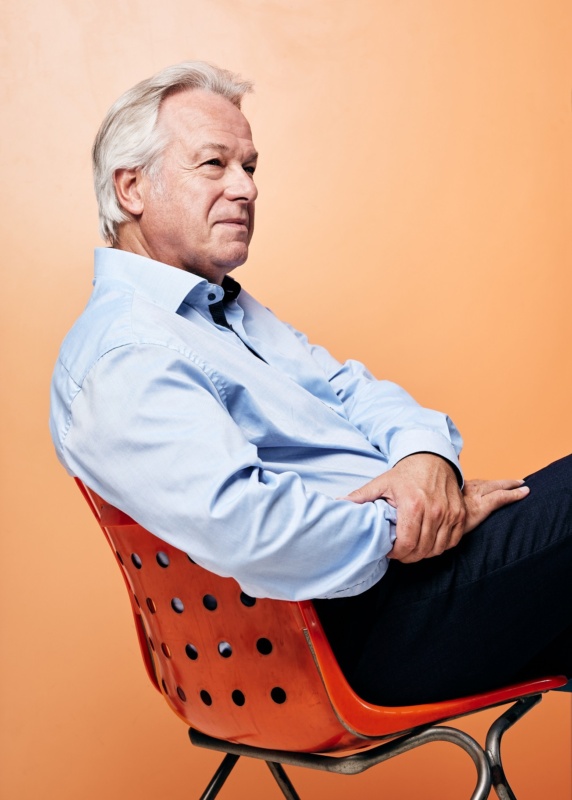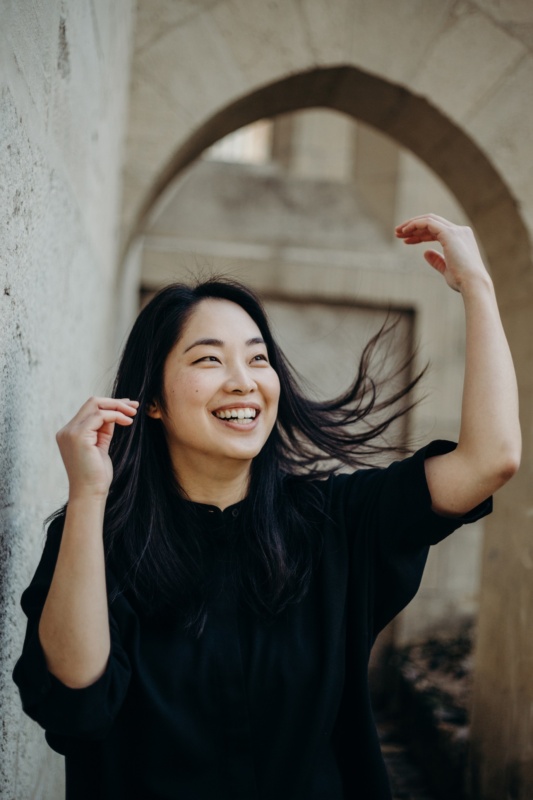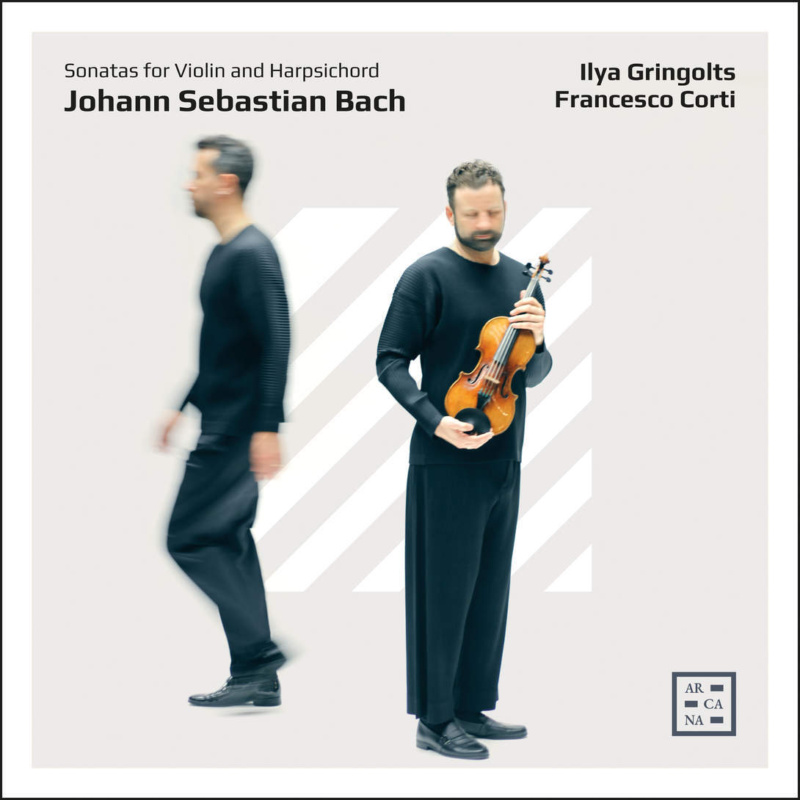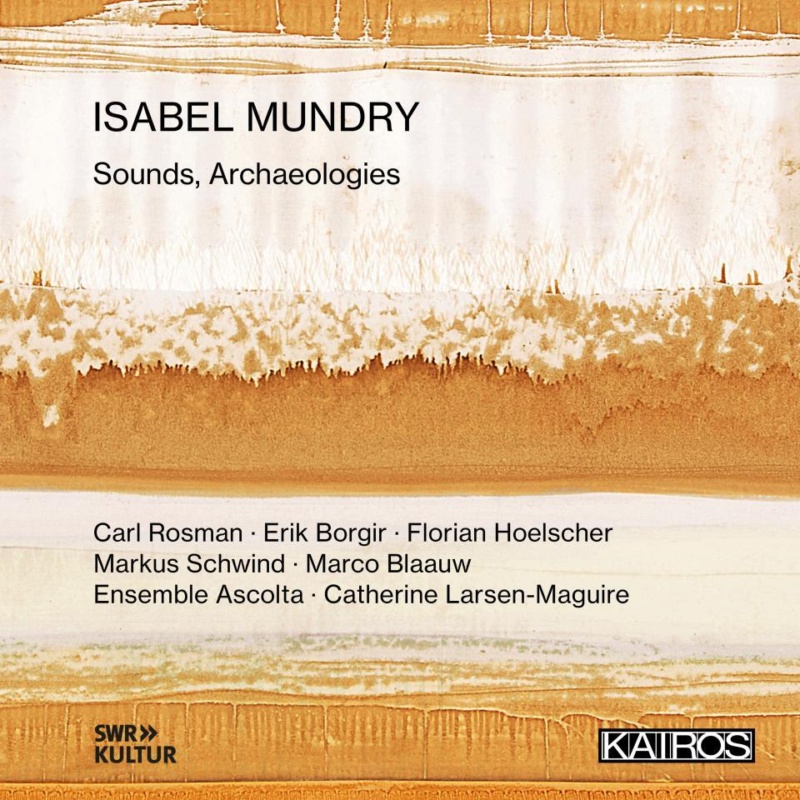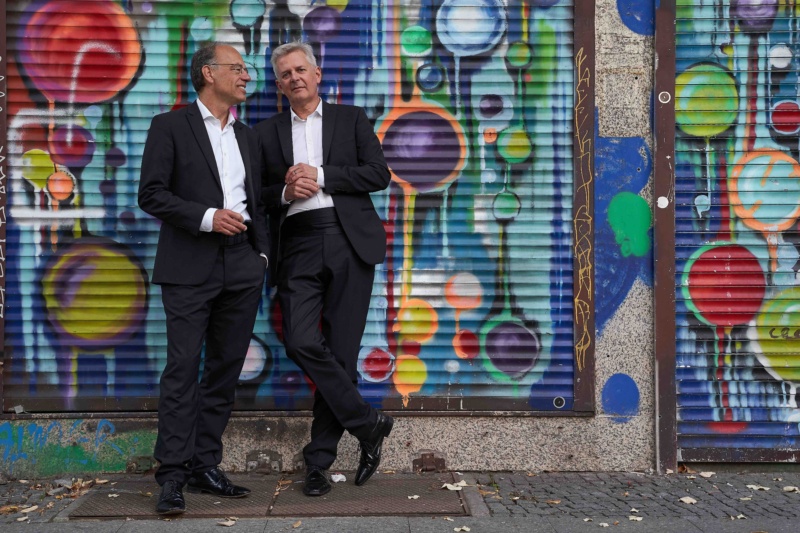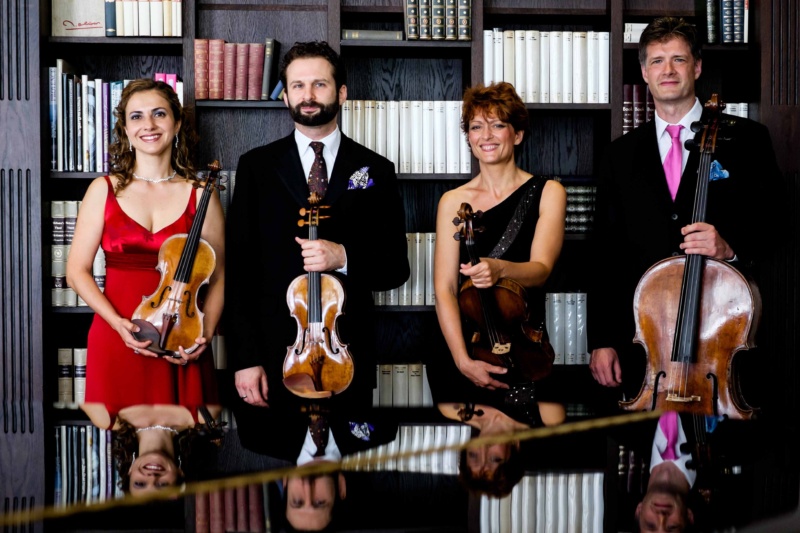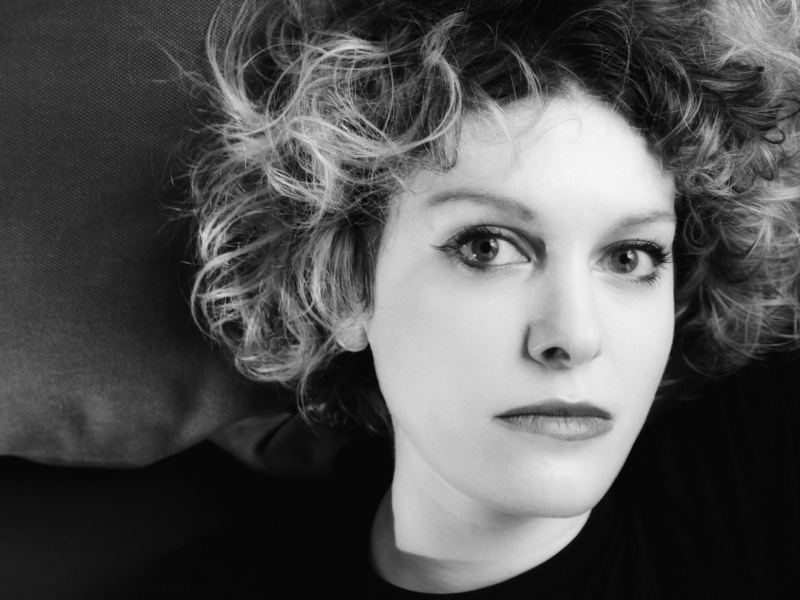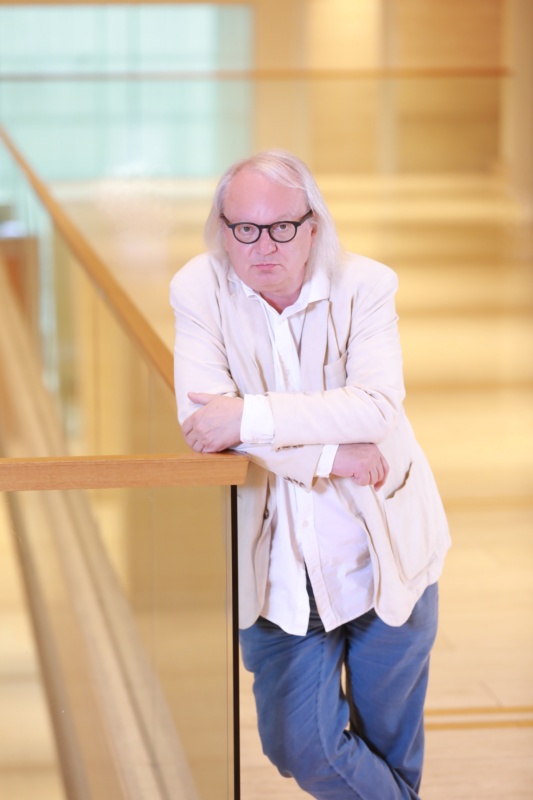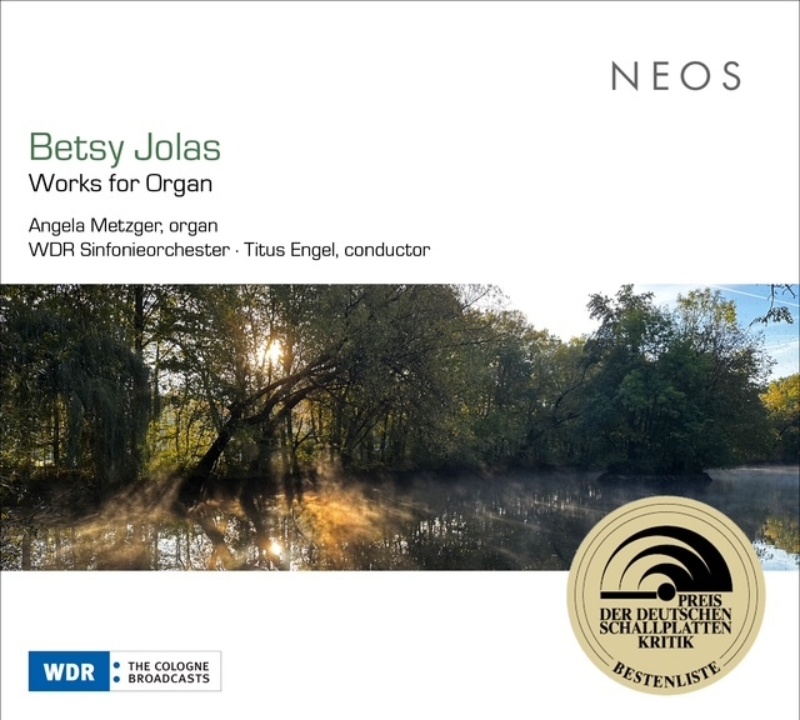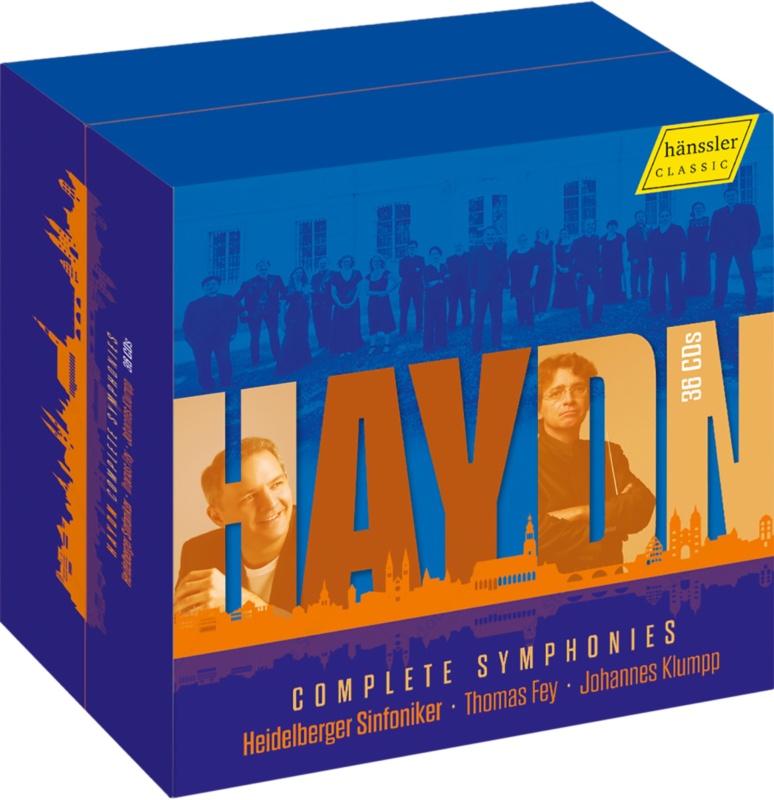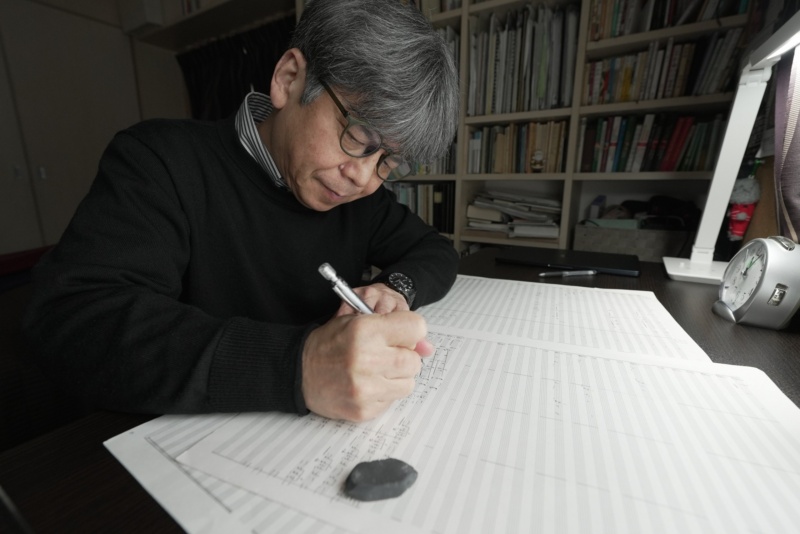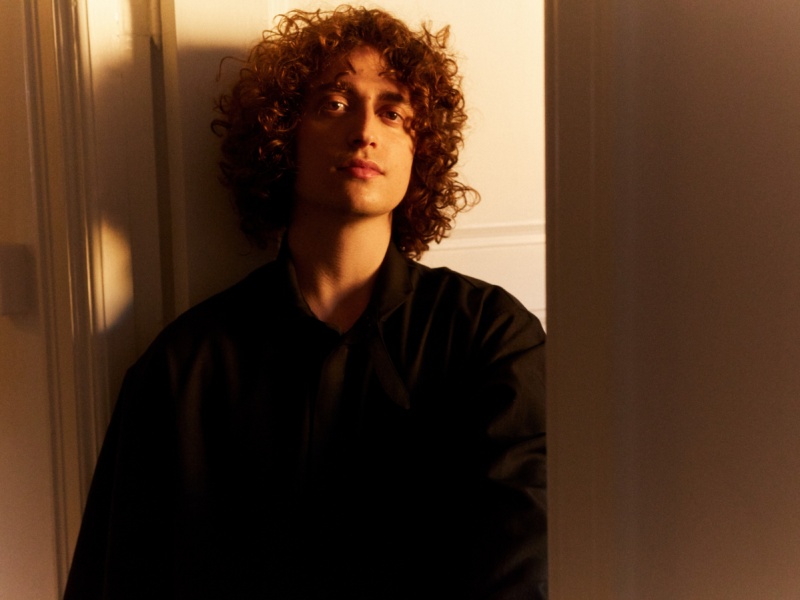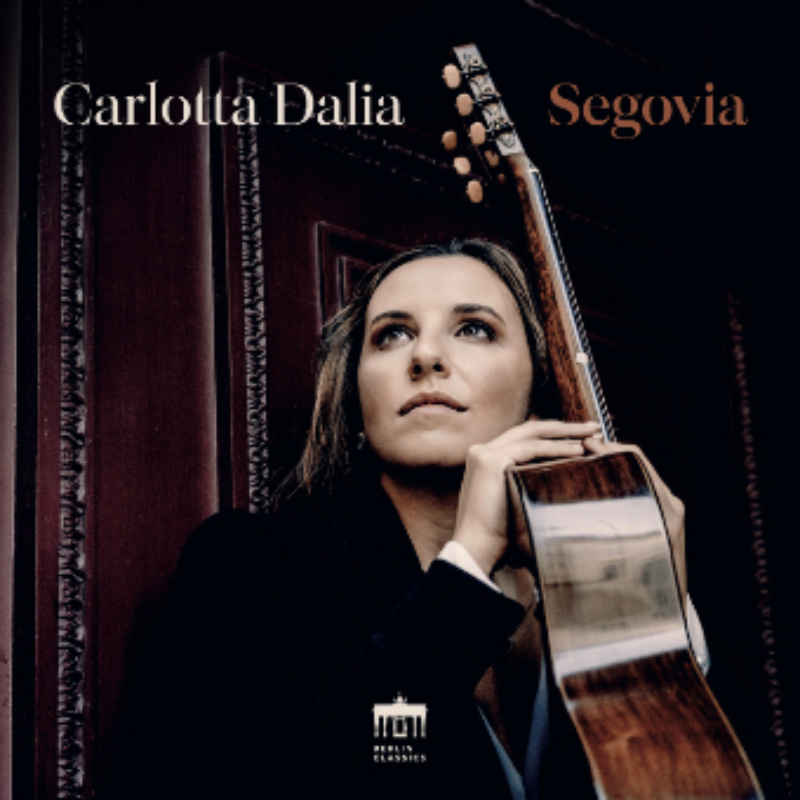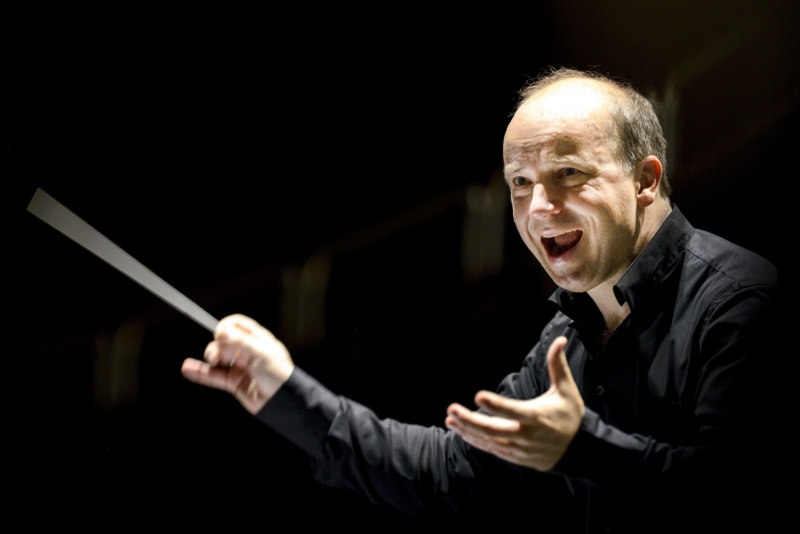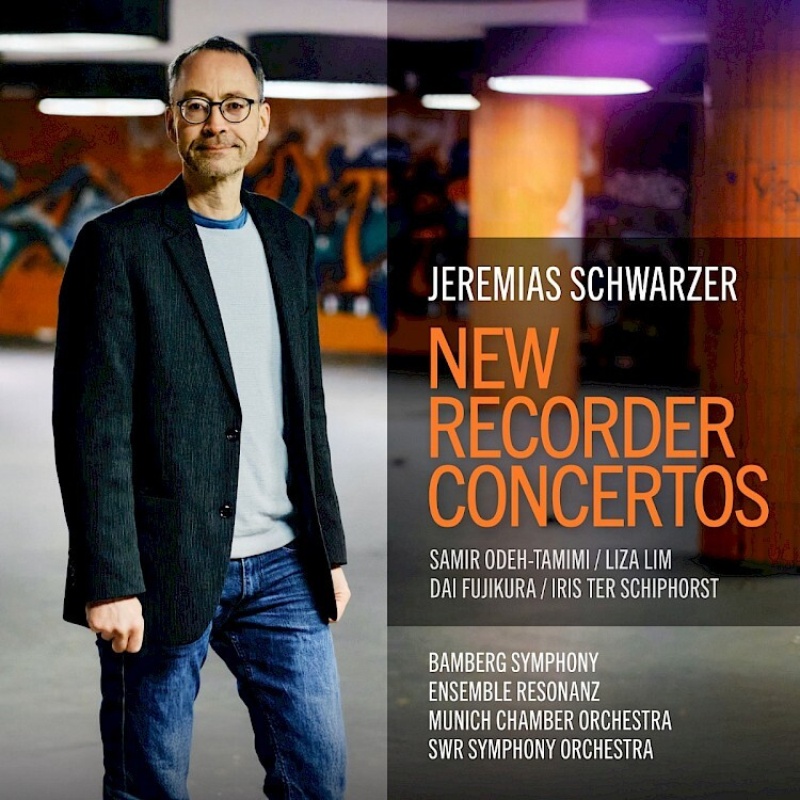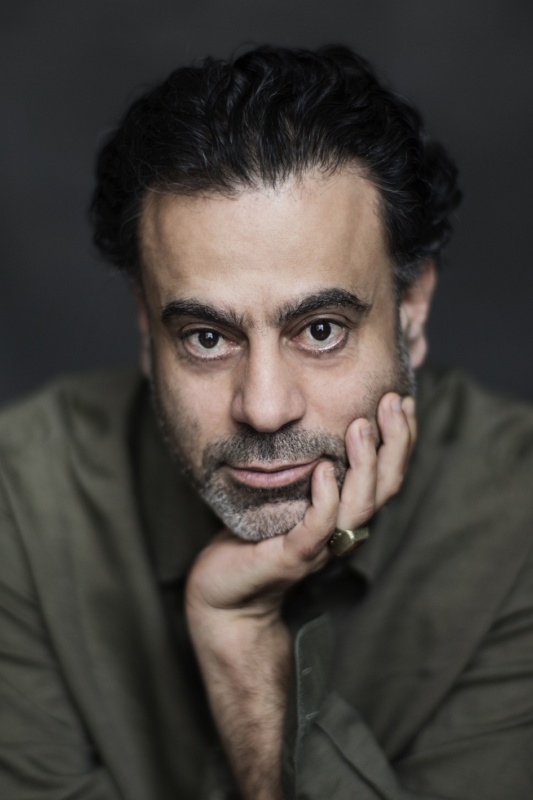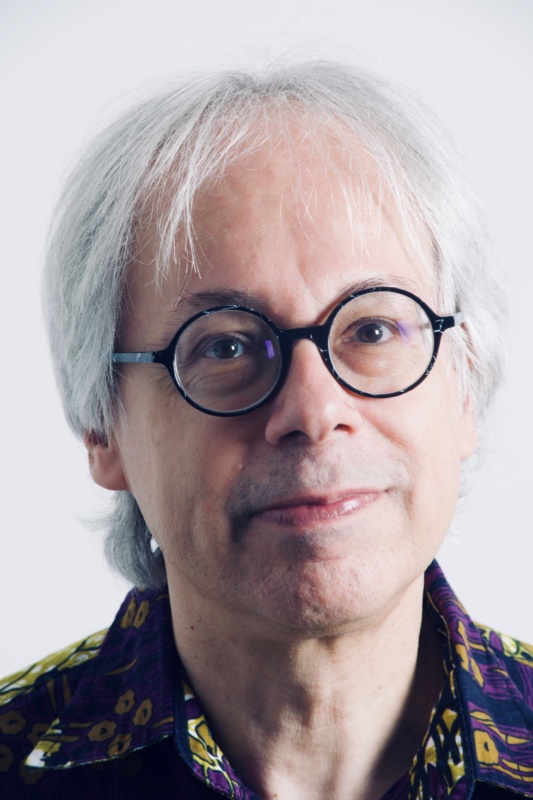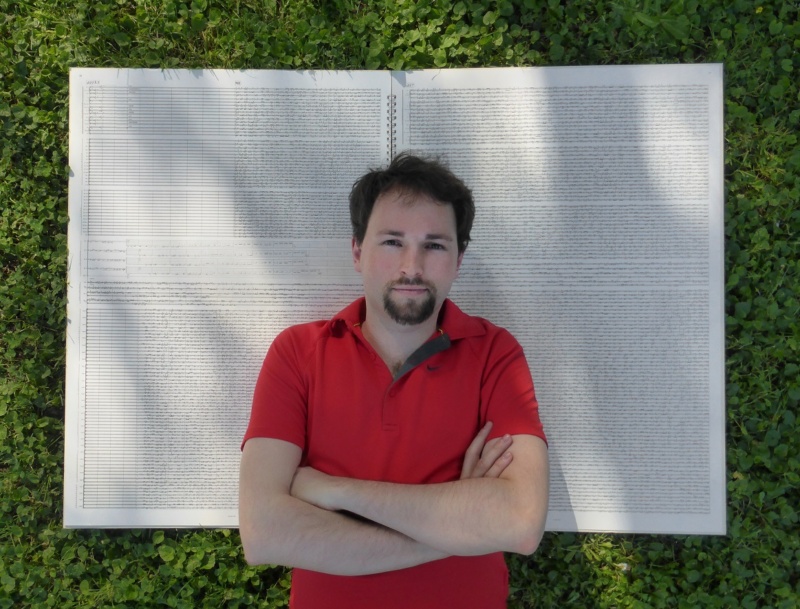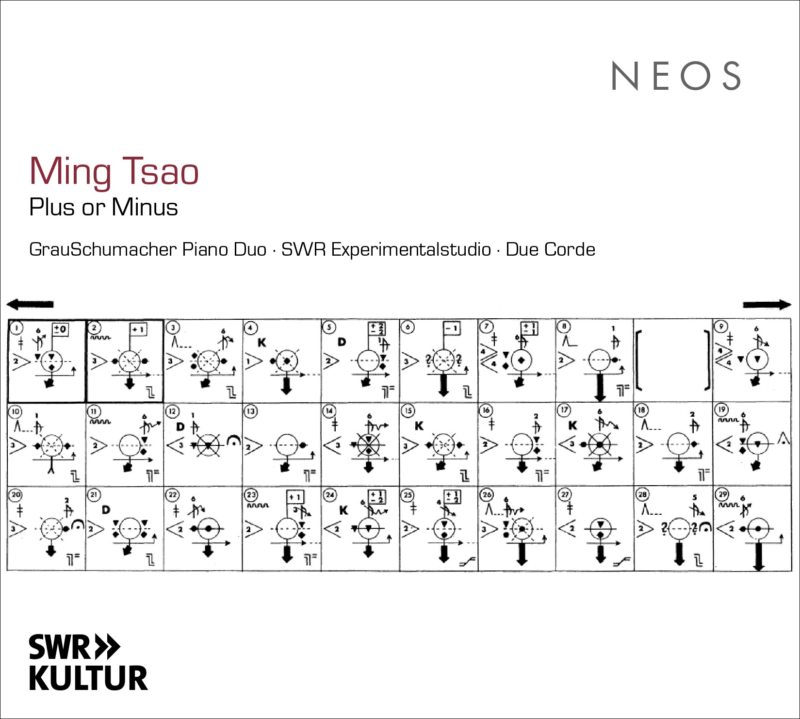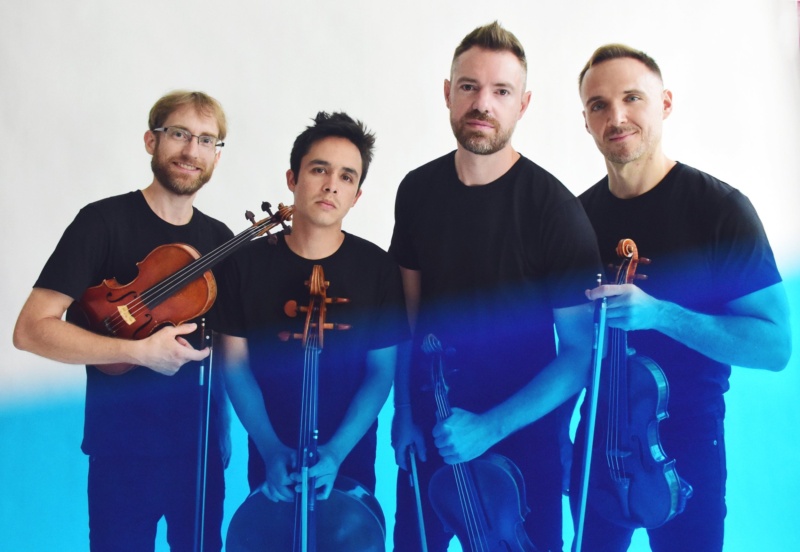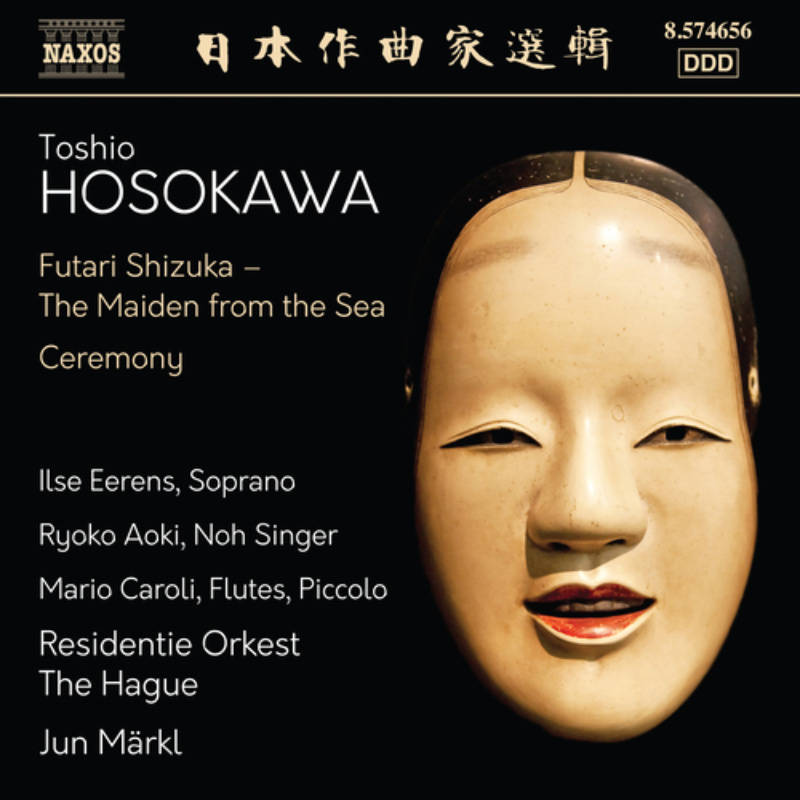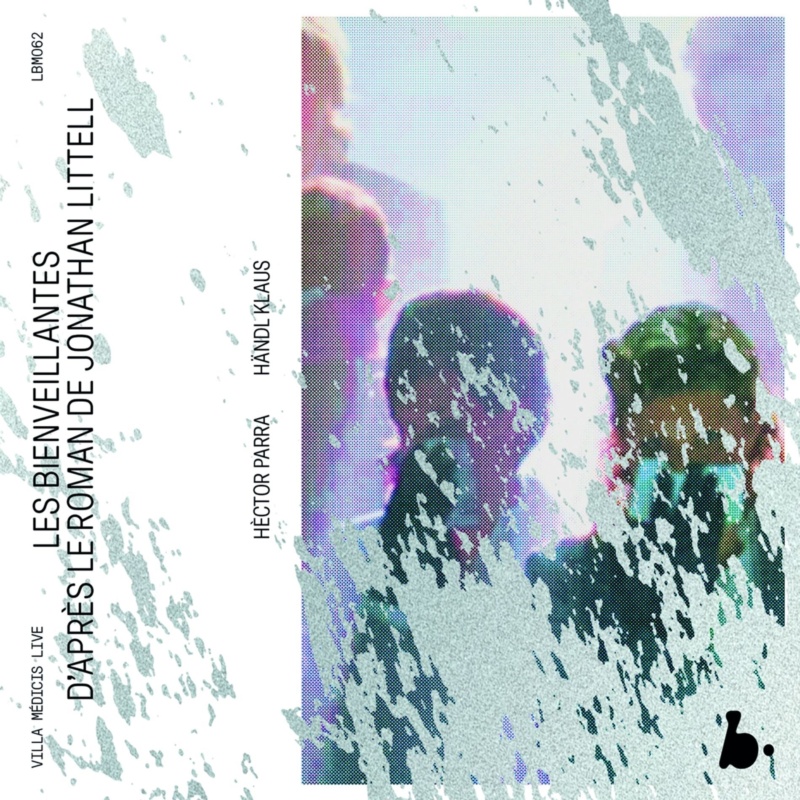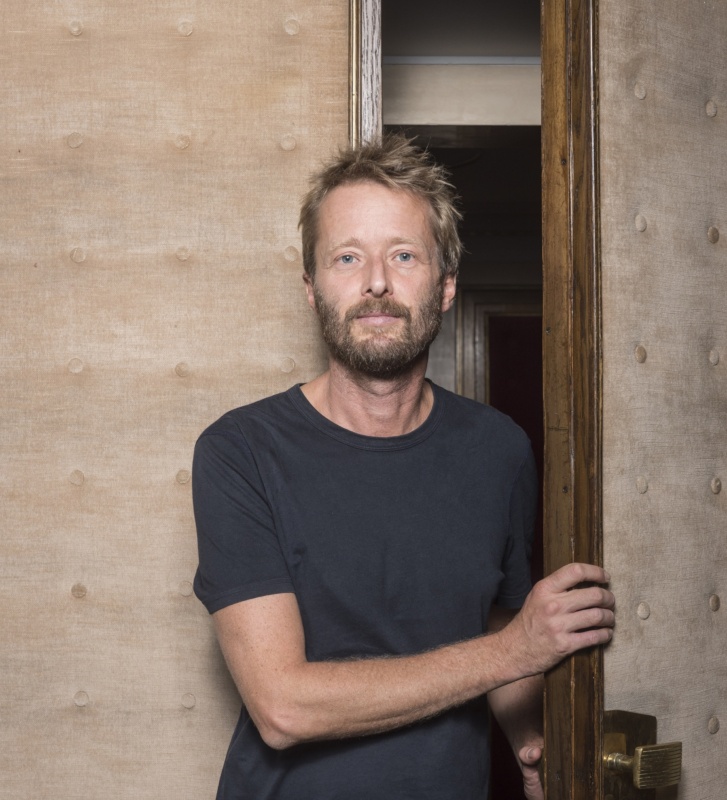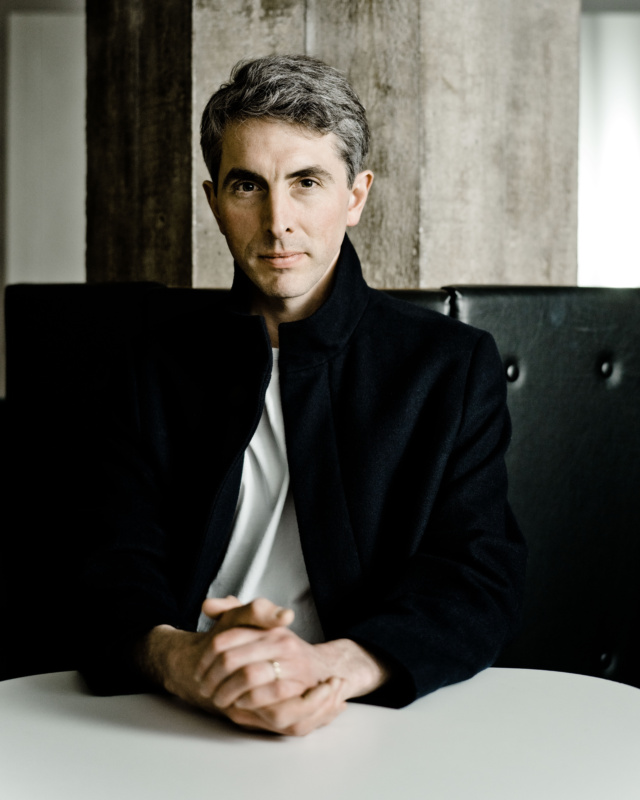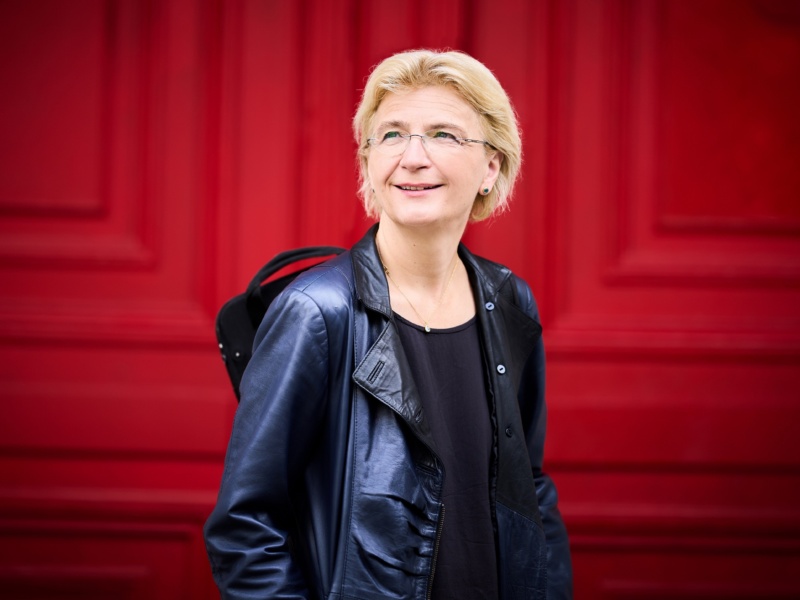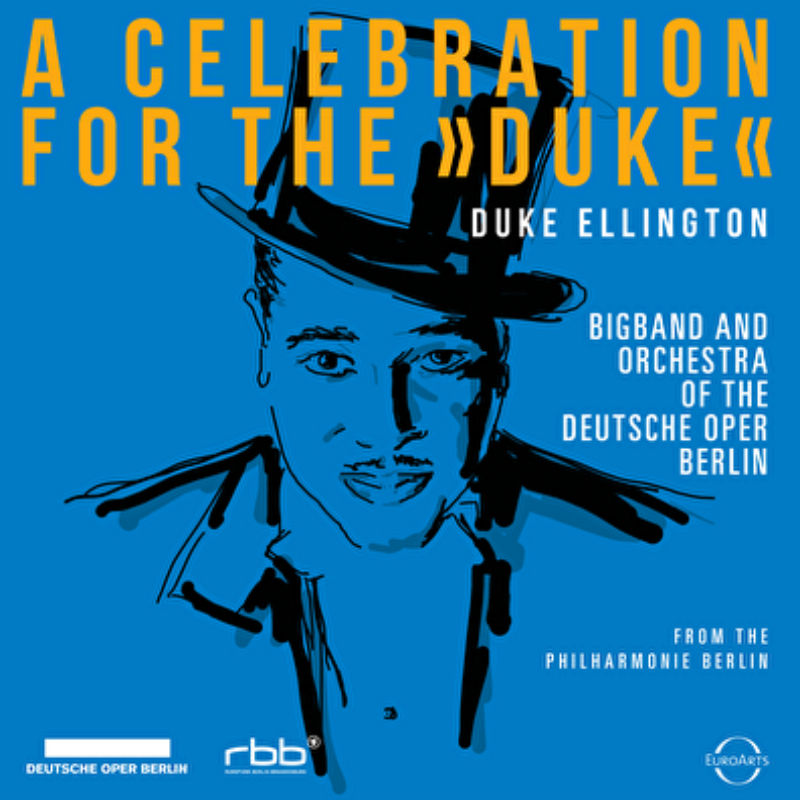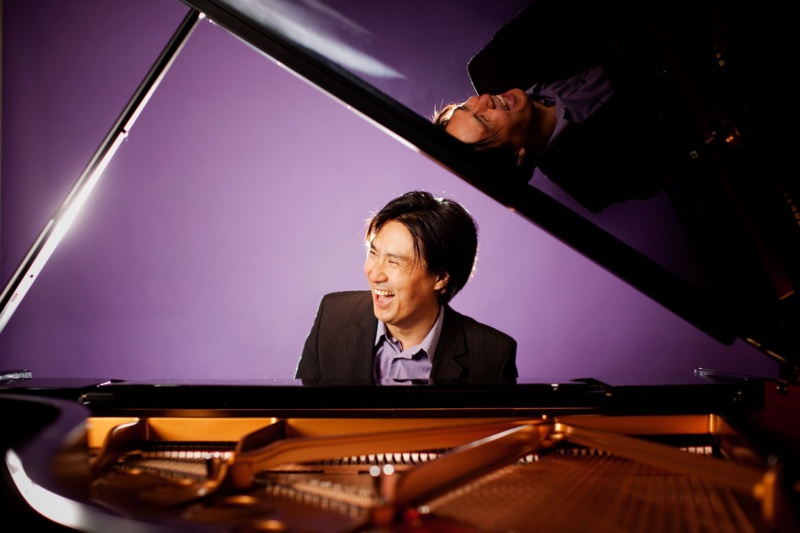The Remix Ensemble is 25 years old, and for 20 years, the soloist ensemble for new music has been performing in a new, breathtaking concert hall, the Casa da Música. Back in 2015, the ensemble’s artistic director, Peter Rundel, told us the story of its early days. For the occasion of the 25th anniversary, we re-publish the article with a big “Happy Birthday” wish!
A commitment to trying new things and taking bold decisions was key to the ensemble’s astonishing success story, and allowed a soloist ensemble for contemporary music to be created for a building which had yet to be built: Casa da Música. “Remix was initially the only sure act that Casa da Música had for its opening,” explains Peter Rundel. “Pedro Burmester, the Portuguese pianist who initiated this concert hall, was sure that he wanted to forge a permanent collaboration between the hall and an ensemble for contemporary music.” The results were an international announcement and auditions across the whole of Europe. “Before the hall was even built, the musicians had already worked on it for five years,” says Peter Rundel, who took over from Stefan Asbury as director of the ensemble shortly before it moved into Casa da Música.
Of the many concert halls built in the past decades, Casa da Música is certainly one of the most interesting ones. Like a jewel perching up high, Rem Koolhaas and his renowned architectural office OMA’s geometric construction lies at the heart of Portugal’s economic hub. It boasts spectacular views, a variety of work spaces and of course an acoustically outstanding hall. It might be the kind of building that you would think had been created for the wealthier members of society – with a programme lining up large international orchestras and star soloists. Or else one that in its modernity might stand for a musical culture of the future, one that is available to a wider audience? “In the period following its opening, this kind of representative culture in the concert hall was the main policy,” admits Peter Rundel. But in the following years, more and more of the financial resources from foundation funds and government grants were used for the Casa’s own programme. “It was a clear move away from mere representation towards production.” Alongside Remix, other ensembles were gradually following suit and becoming part of the hall: for example, the previously independent Orquestra Sinfónica do Porto was taken on, and a chamber orchestra for early music with Lawrence Cummings as conductor was created. “Last but not least a choir conducted by Paul Hillier was founded, meaning that today the hall has four of its own ensembles. This is unique within Europe!”, Peter Rundel goes on to say. “It is also the result of a shrewd political decision to actively encourage regional artistic strengths.”
The fact that this cultural-political decision came at a time when a young generation of excellent musicians was entering the scene in Portugal was a stroke of luck for all of those involved. Of course, Remix is an international ensemble but it also enjoys a surprisingly high proportion of Portuguese members. “And one has to point out that this is because of the achievements”, Peter Rundel clarifies. “Young musical talent in Portugal is now on an international level. This is apparent at our auditions, at the Remix Ensemble’s summer academy and when we work with young soloists who perform at Casa da Música on various occasions.”
The programmatic concept of the concert hall is both distinct and transparent, matching the self-confidence of this new generation. Peter Rundel confirms that collaboration with Casa da Música’s artistic director, António Pacheco, is an important key to the Remix Ensemble’s success. “There is a clear focus on contemporary music – Remix is an important advocate of this – and there is an overall dramaturgical concept, for example focusing on a different country each season.” Not only pieces belonging to the respective country’s musical tradition take centre stage; prominent composers in residence also stand for these focal points. Helmut Lachenmann is the focus for Germany in the 2015 anniversary year, for example; 2017 Harrison Birtwistle will visit Porto, each visit being accompanied by performances by all of the in-house ensembles. “At the same time, every year we offer a young Portuguese composer the opportunity to present themselves to a wider audience”, Peter Rundel adds. “What is more, there is a series of “mini festivals” for all ensembles throughout the season, each with its own theme. This clear structure is very user-friendly for audiences and also allows for great diversity. Casa’s success rests on the concert hall and the concerts being very well received by as diverse a cross-section of Porto’s population as possible.”
This development would be good news for any city – and for Porto, the value of a functioning cultural centre that is able to give impetus to the musical life of a city beyond its own four walls is of the utmost importance. As Portugal’s economic centre, the world heritage city in the Douro region is an energetic urban space but it is also a place, which seems to lie on the edge of Europe from the perspective of European music metropolises – those who wish to go to concerts in other cities certainly have a long way to travel. By the same token, this situation has provided the Remix Ensemble with the specific wish to find its audience elsewhere. “From time to time we play in Lisbon at the Gulbenkian Foundation but Portugal is a small country with few performance opportunities”, Peter Rundel explains. “It’s all the more important for us that we have the possibility to face the competition and introduce ourselves to other audiences at European festivals for contemporary music or showcase our opera projects. This artistic challenge is very important for the ensemble and thanks to it we have taken a definite step forward in the last few years.”
The contemporary music theatre projects that the Remix Ensemble regularly presents on tours have caused a particular stir. “There’s a close collaboration with the French production company T&M - Théâtre et Musique”, explains Peter Rundel. “Wolfgang Mitterer’s Massacre was extremely successful for example. Then of course the Ring Saga, a mammoth project that could only be realised with the help of other partners.” The arrangement of Wagner’s Ring, boiled down to three days and to ensemble size, was seen across France and in Italy and was recorded by the television channel ARTE. “Following a break, we are now giving the world premiere of the first opera by the young Italian Francesco Filidei’s, surely one of the most interesting composers of his generation”, says Peter Rundel delightedly.
Giordano Bruno can be seen in Porto as an opera in twelve scenes in September 2015 before Remix presents the work in Strasbourg and Reggio Emilia. “I think that Francesco Filidei succeeded in creating a musically absolutely brilliant work”, enthuses the conductor after the first rehearsal with singers and choir. “The material has been transformed with a hypnotic music.”
Nina Rohlfs, translation: Celia Wynne Willson, first published 8/2015
